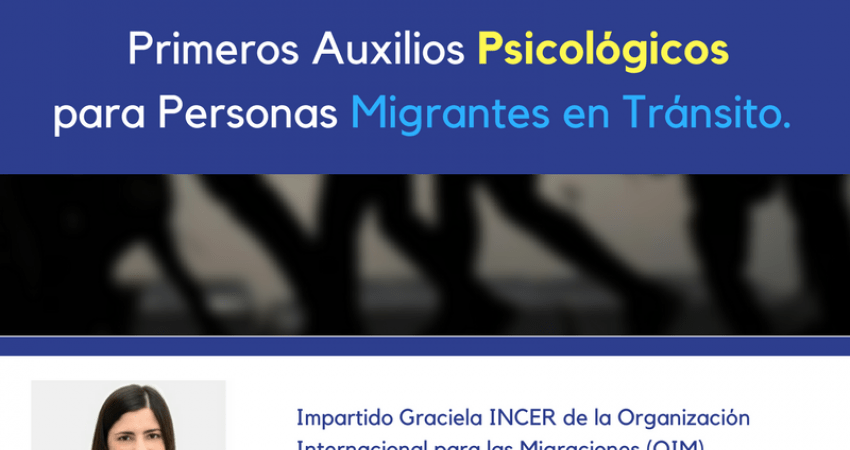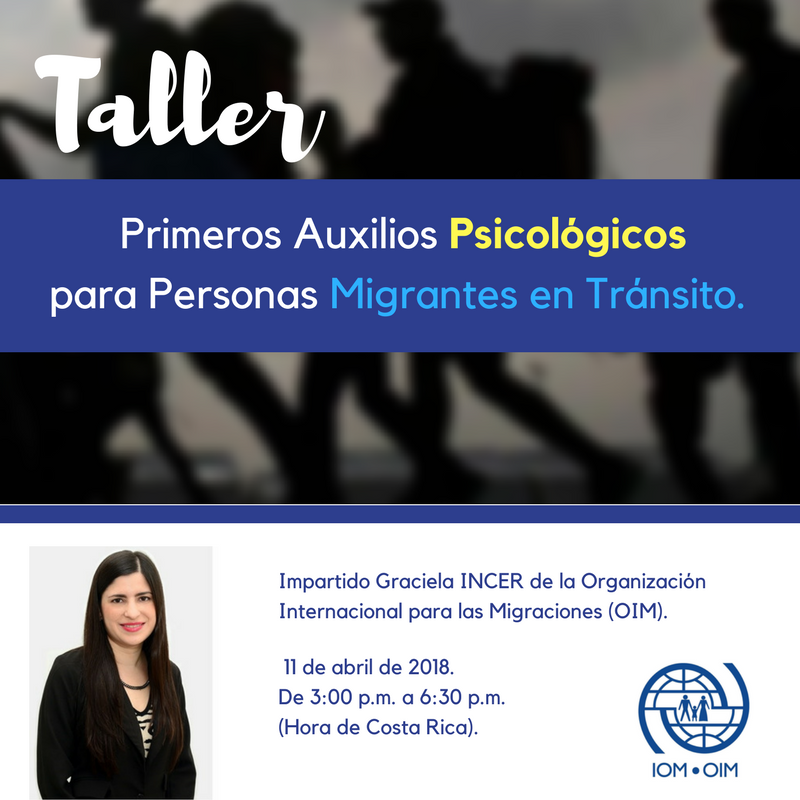IOM shared its expertise and experience on Psychological First Aid for Migrants


Psychosocial support, and particularly psychological first aid, has become an essential component of migrant protection.
Costa Rica- As part of the third iteration of the “Course on Psychological First Aid for Migrants, Refugees, and Displaced Persons,” IOM gave a closing workshop through a webinar on the topic “Psychological First Aid for Migrants: Psychological intervention techniques for women who are victims of violence and unaccompanied children and adolescents.”
The course was organized for the third consecutive year by the Citizen’s Initiative for the Protection of a Culture of Dialogue and the Mora Institute in Mexico. The organizers and students invited the United Nations’ Organization for Migration (IOM) to deliver a specialized workshop to focus on women and children and on the use of specific techniques and tools for providing psychological first aid. 70 people attended the webinar from six universities, five in Mexico and one in Dallas.
Psychosocial support, and particularly psychological first aid, has become an essential component of migrant protection. The most common cases of offering psychological first aid are directly connected to migration processes and their different stages; for example, at the destination, the person may experience multiple grieving processes, alienation, and identity confusion. Psychological first aid is not only provided by professionals in the field of psychology or psychiatry, but by anyone who has been trained to do so. For this reason, and for its undoubted positive impact on migrants, it is necessary to train staff responsible for providing support to migrants in psychological first aid techniques.
Part of the content provided included techniques and activities from the IOM Handbook for Psychosocial Support for Migrants in Mesoamerica. Graciela Incer, IOM Specialist on the matter, explained the specific needs to know when working with female migrants who have been victims of violence, as well as migrant children and adolescents, to provide them with adequate psychosocial support. IOM also explained protection, relief and support, practical assistance, and strengthening coping strategies. The participants put into practice the content of the workshop during a second phase, through videos, practical cases to evaluate, and activities that could be carried out in a virtual environment.
The course was promoted by IOM through the Mesoamerica Program, which is funded by the Bureau of Population, Refugees, and Migration (PRM) of the Department of State of the United States of America. The Mesoamerica Program seeks to contribute to the development and implementation of strategies for regular, orderly, and safe migration, ensuring adequate protection for migrants.